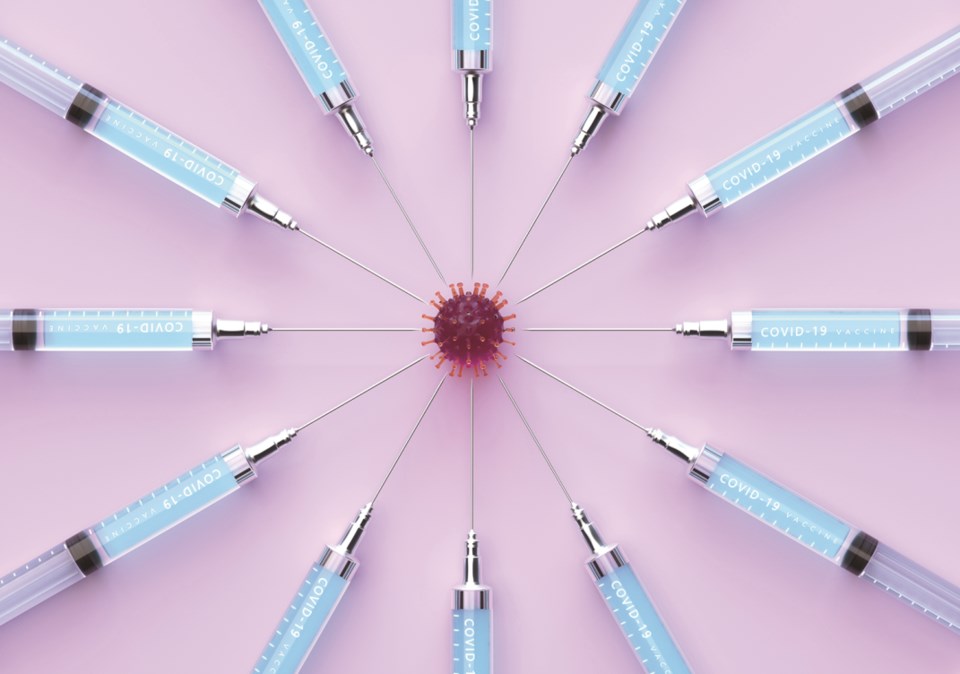If you think your younger kids will soon be vaccinated against COVID-19, guess again.
Michael Grant says he was surprised they moved to allow children 12 and older to get the Pfizer vaccine as soon as they did, but authorities aren’t likely to green-light the younger set before the end of the year.
The reason?
Drug companies have to start at Square 1 when it comes to testing vaccines on children, and can’t just make presumptions based on adult clinical trials.
“It’s a concern with schools going back in September, for sure, and people getting together inside buildings,” said Grant, an immunologist at Memorial University’s school of medicine in St. John’s.
But the way children react to vaccine is a whole different ball game, and requires a whole new round of clinical trials.
“They’re quite likely to respond differently to the vaccines, just like they respond differently to infections than adults do,” Grant said in an interview Monday.
“Newborns, the immune system is definitely still immature, so they don’t respond to vaccines as well. They don’t produce antibodies as well as even a six-month or a 12-month-old infant.”
Dr. Judy Martin, a pediatrician at the University of Pittsburgh, is a researcher involved in clinical trials of the Moderna vaccine in children.
“We recently enrolled kids ages 6-11 as well as six to 24 months of age in Phase 2 of the pediatric Moderna trials, focusing on whether the vaccine is safe to use in these kids and at what dosages,” Martin wrote for TheConversation.com last week.
“Our site is now set to move to Phase 3 of the pediatric trials, currently slated to begin in mid-August for children age 6-11, throughout the U.S. and Canada.”
Both Martin and Grant emphasize that while newborns don’t respond well to immune stimulus, the opposite is true of older children.
“Once they’ve matured, children’s immune systems tend to react more strongly to infections, and probably better to the vaccines than older adults,” said Grant.
“They could have a stronger reaction, so more fever, headache, flu-like symptoms.”
Mother’s antibodies
Another consideration is what effect a woman's vaccination during pregnancy has on the newborn.
“Because certain types of antibodies cross the placenta, they will have antibodies from their mother for the first six months of life. And those antibodies, in the case of the COVID vaccine, will affect the way that children respond,” said Grant.
Adults make much better trial participants because they can keep accurate logs.
“Researchers need to be on alert for side effects that might only occur in youngsters and didn’t appear during vaccine tests on adults,” wrote Martin. “Safety is critical and each study has many layers of safety mechanisms in place to ensure that researchers like us proceed cautiously and evaluate all of the data and information at every step along the way.”
Using kids for clinical trials raises ethical considerations to a whole new bar, admits Martin.
“When a family volunteers to enroll in a vaccine study, our research team has an in-depth discussion with them about the requirements, as well as the potential risks and benefits,” she wrote. “We try to answer all of their questions so that they can decide if a study is a good fit for them. Ultimately, parents are trying to make a decision that is in the best interest of their child.”
Pfizer-BioNTech, the biggest purveyor of mRNA COVID vaccines, says it will be ready to request emergency authorization of use in children under 12 from U.S. authorities as early as September.
Pfizer was already ahead of the game in May when it received the green light in Canada for children 12 and older.



